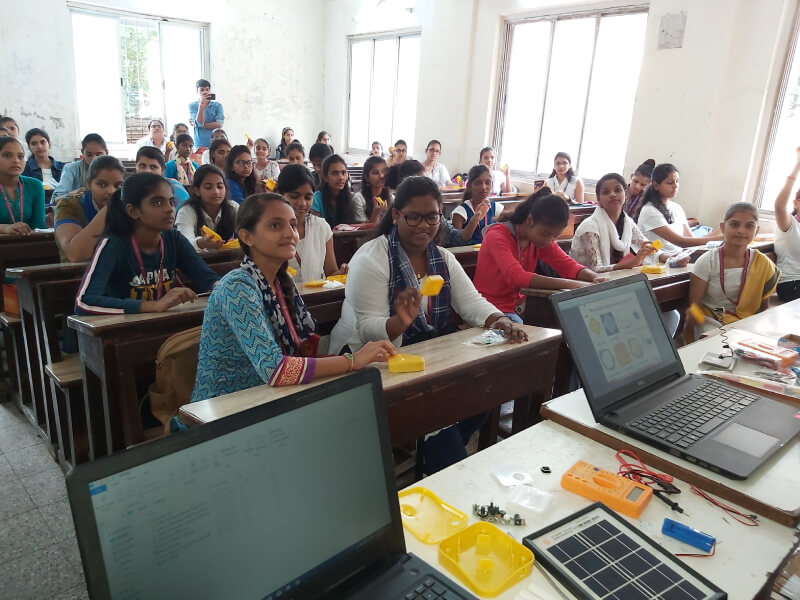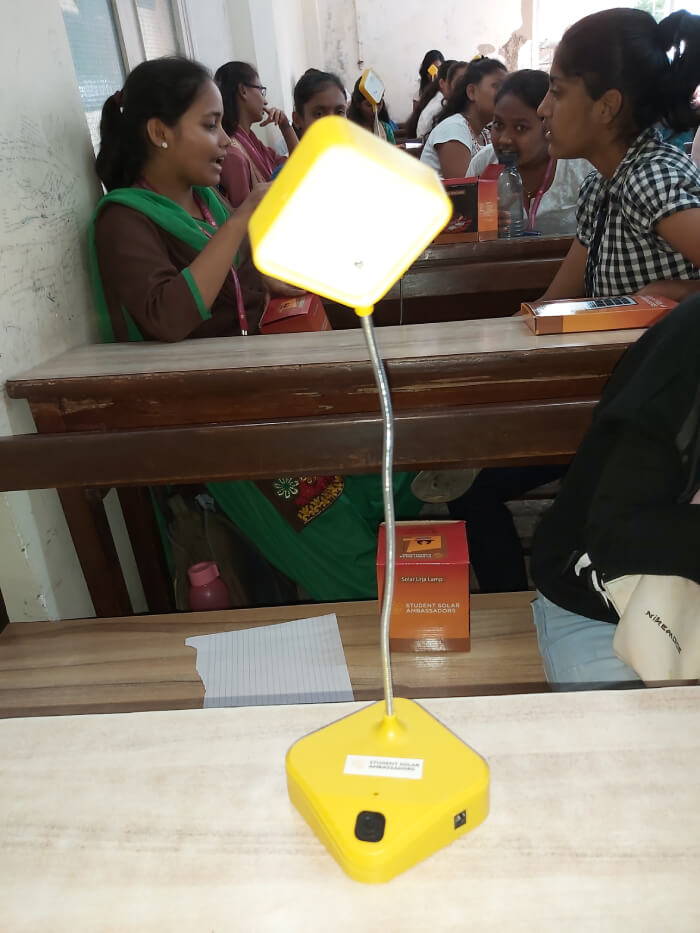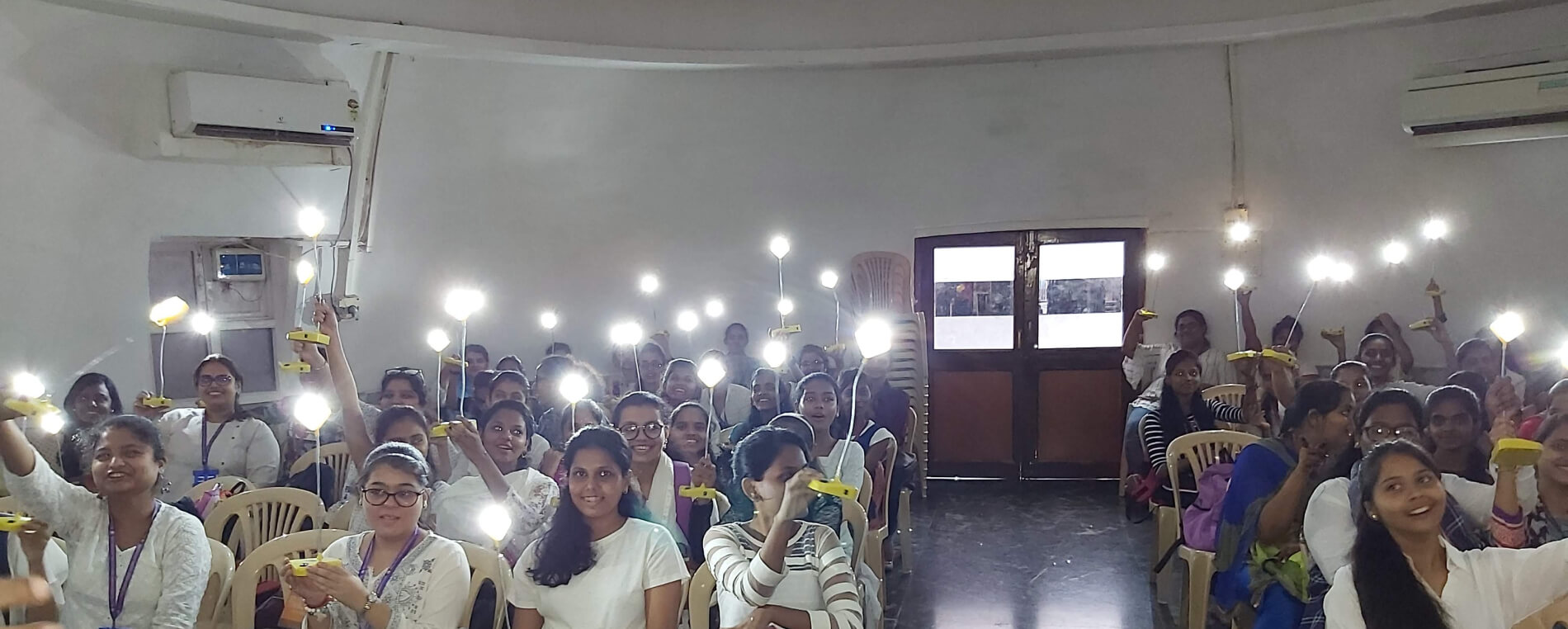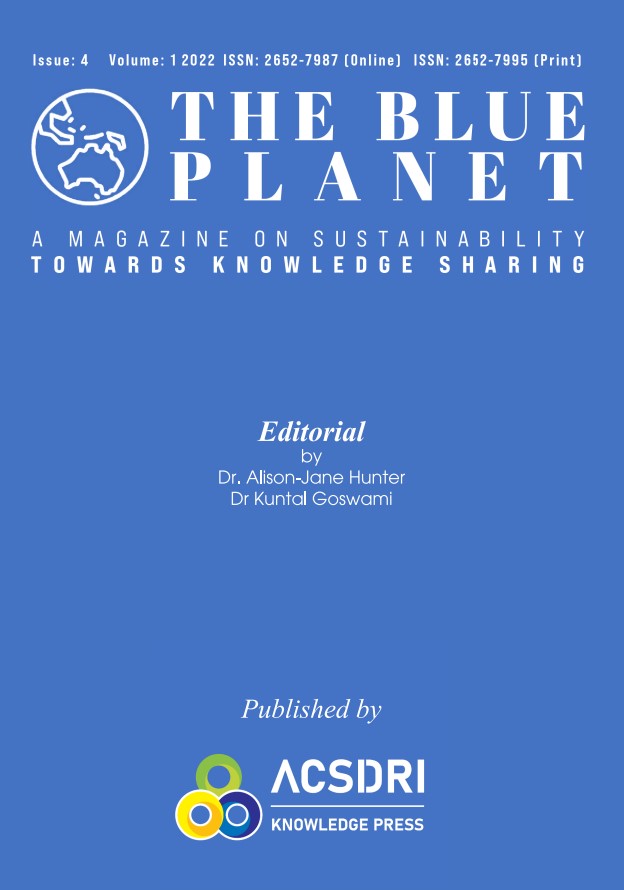DEVELOPING AN AWARENESS PROGRAM ON
ENERGY CONSERVATION & RENEWABLE ENERGY USE
Author: Dr. Ritu Bhatia, SPND Women’s College, S.N.D.T Women’s University Mumbai
Photography by
Introduction:
centigrade. Because of this incredibly stable Earth’s temperature and climatic conditions, human civilisations were able to blossom.The Sustainable Development Goal-7 advocates for investment in energy efficiency and to increase the share of renewable energy by 2030.
About the Action Research Project
The broad objective of the project was to encourage young people to be energy efficient, and to introducing them with
renewable energy source, alongside bringing awareness of the need to adopt new practices for energy conservation. The community-based action research project was carried out in 3 phases with 155 college students from the middleincome socio-economic neighbourhood
of the central Mumbai. The project ran for three months from October 2019 till December 2019 in collaboration with the Indian Institute of Technology (IIT) Mumbai and Tata Power.




Execution of Project
Phase 1: Orientation for Energy Conservation.
Presentation by Energy Expert
Phase 2: Workshop on Solar Energy Lamps.
1. Making of Solar Lamps
The Solar lamp making project was executed by the experts from the Indian Institute of Technology (IIT) Mumbai. They trained tudents in how to make solar lamps to harness renewable solar energy. The students were provided with solar lamp kits for a nominal price and the engineers from the IIT Mumbai trained the students to assemble the kits. The experts explained to the students how to recharge lamps everyday with solar energy. It was advised to use these solar lamps for study purpose at night and there by will help their families both ways:
2. Visits to manufacturers and outlets of Solar Products




Phase-3 Informative learning materials on Energy Conservation Ideas
Phase-3 Informative learning
materials on Energy Conservation
Ideas
The learning materials covered tips on lighting systems, room air conditioners, and refrigerators:
Lighting Systems

Energy Conversation Renewable Enrgy
Use

Future Economic Development




Room Air Conditioners
Refrigerators
Water Heaters
Microwave Ovens & Electric Kettles
Computers




Conclusion:


Photography by

Photography by

